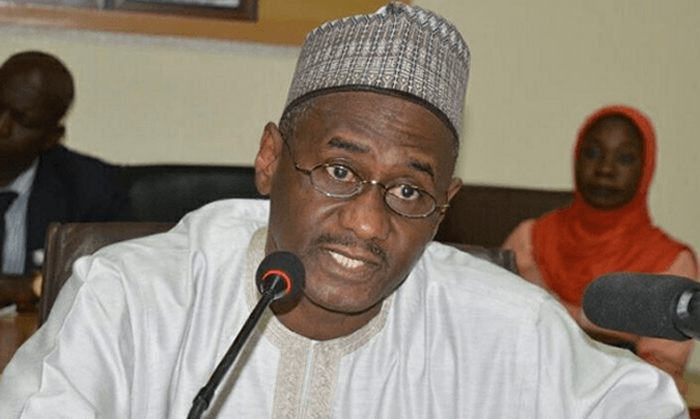The arrest and subsequent detention of Professor Usman Yusuf, a prominent social critic and former Executive Secretary of the National Health Insurance Scheme (NHIS), has ignited a firestorm of controversy in Nigeria’s political landscape. Atiku Abubakar, the 2023 presidential candidate of the Peoples Democratic Party (PDP), has publicly denounced the detention, characterizing it as a politically motivated maneuver by the current administration of President Bola Tinubu to silence dissenting voices. The case against Yusuf, involving allegations of contract irregularities and budgetary inflation during his tenure at NHIS, has been lingering since the previous administration. However, its resurgence under the Tinubu government has raised suspicions of a targeted campaign against critics of the ruling party.
Atiku’s condemnation of Yusuf’s detention underscores a growing concern about the potential misuse of state institutions to suppress opposition and stifle freedom of expression. He argues that the Tinubu administration, despite harboring individuals facing their own investigations and scandals, is selectively deploying the machinery of state to target those who dare to criticize its policies and actions. This perceived weaponization of pending investigations creates an environment of fear and intimidation, effectively silencing dissent and undermining democratic principles. The former Vice President asserts that the government’s actions are a thinly veiled attempt to neutralize political opponents under the guise of combating corruption.
The timing of Yusuf’s arrest, shortly after his vocal criticisms of the Tinubu government, further fuels speculation about the political motivations behind the move. While acknowledging the existence of the allegations against Yusuf from the previous administration, Atiku questions the current government’s sudden urgency in pursuing the case. He posits that the timing is no coincidence and serves as a clear warning to other potential critics. This selective application of justice, targeting critics while shielding allies facing similar accusations, erodes public trust in the government’s commitment to impartiality and the rule of law.
The controversy surrounding Yusuf’s detention exposes a deeper tension in Nigeria’s political climate – the delicate balance between legitimate anti-corruption efforts and the potential for such efforts to be manipulated for political gain. Atiku’s critique highlights the danger of blurring this line, emphasizing that the pursuit of justice should not be selective or serve as a tool for political retribution. He argues that the current administration’s actions are not about fighting corruption but about consolidating power by silencing any opposition that threatens its authority. This politicization of anti-corruption efforts undermines the credibility of the government’s commitment to genuine reform and reinforces the perception of a political witch-hunt.
The core of Atiku’s argument centers on the hypocrisy he perceives in the Tinubu administration’s approach to corruption. He points to the irony of a government, allegedly rife with individuals facing their own scandals, pursuing critics with vigor while seemingly protecting its own ranks. This double standard, he contends, reveals the true nature of the government’s agenda – not the eradication of corruption, but the elimination of political rivals. This perceived hypocrisy not only undermines the legitimacy of the government’s anti-corruption efforts but also fuels public cynicism and distrust.
The case of Professor Usman Yusuf serves as a microcosm of the broader challenges facing Nigeria’s democracy. It raises fundamental questions about the government’s respect for freedom of expression, its commitment to due process, and its willingness to apply the law equally to all, regardless of political affiliation. Atiku’s vocal criticism of Yusuf’s detention underscores the importance of vigilance and the need to hold the government accountable for upholding the principles of justice and fairness. The future of Nigeria’s democracy hinges on the government’s ability to demonstrate a genuine commitment to these principles, rather than using the fight against corruption as a pretext for suppressing dissent and consolidating power. The international community and human rights organizations are watching closely, and the government’s response to this controversy will have far-reaching implications for Nigeria’s reputation and its future.














